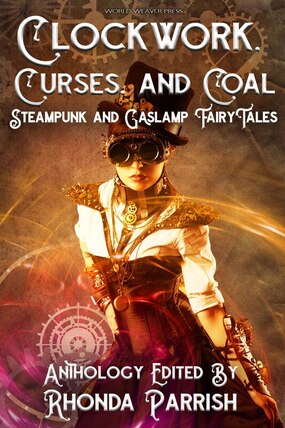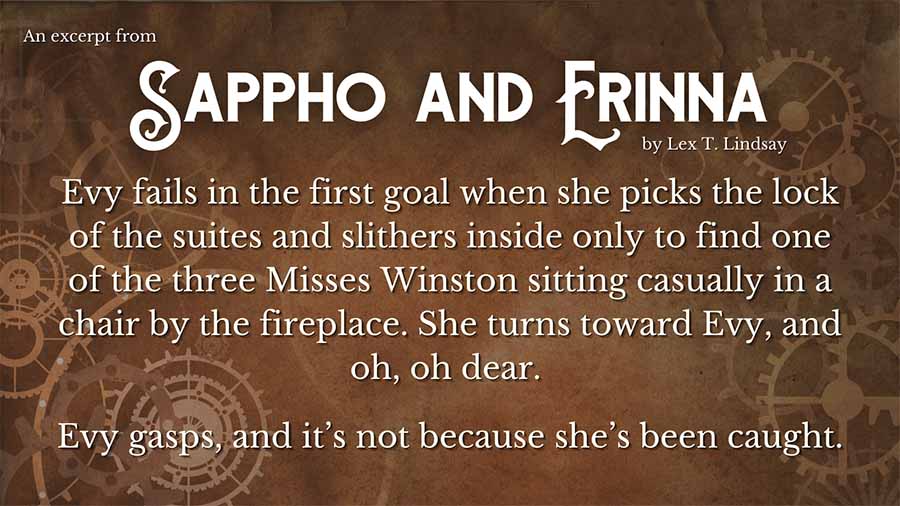 Guest Blog by Lex T. Lindsay Like so many children, I grew up on fairy tales. I had a thick book of kid-friendly classics like “Snow White and Rose Red” and “Cinderella.” I watched and loved movies about princesses finding their happily ever afters and wicked step-somethings eating their just desserts. From a young age, there was a level of escapism to these stories. I rarely had lasting and truly meaningful friendships as a child. I was (am) both fat and neurodivergent, two things that severely impacted my ability to form and maintain relationships. My school was small. We all grew up knowing our classmates’ names. We also grew up knowing every person’s alleged flaws. There was nowhere to hide, no sea to be lost in. From a young age, I was the butt of “she likes you” jokes, these declarations directed at students for whom I had no romantic inclinations. In their faces of disgust, I found myself being rejected—receiving “no”s to questions I never even asked. Later on, these jokes shifted into instances of being asked out for a laugh, the asker often doing it at the urging of a group of giggling peers. The message was clear. You are not worthy. In fact, you are so unworthy that the very idea of you having worth is hysterical. Picked last, left out, blown off, and passed over. For me, dreaming of my own prince was dreaming of a life where I was genuinely loved and valued. A life where all the things that once hurt me were, like a horrid pea beneath so many mattresses, nothing but a bad memory. The only problem is that no one in fairy tales looked like me. As I moved through childhood and was taught the perceived worth of bodies like mine—as I learned to be ashamed of how I looked in a swimsuit or a sleeveless shirt—my daydreams shifted. No longer was I simply dreaming of princes and forever loves. Instead, I dreamed about situations where, before I could be with the prince, I underwent a magical transformation that made me physically worthy of being loved at all. I imagined magic spells, sci-fi experiments, and witchy mentors telling me that my body wasn’t my final form after all. I didn’t really notice or examine this shift in thinking at the time, the way I wrote myself off even in my own stories. But I did it time and time again. As I grew older still, my personal relationship to fairy tales took another hit. I’m bisexual, and romantic fairy tales are some of society’s most heteronormative stories. Whether we’re talking Disney animations or holiday retellings on Lifetime or Hallmark, so many of these storylines hinge on concepts like love-at-first-sight (or even love-at-no-sight-at-all.) There is a pretty girl. There is a pretty boy. We all know where this is going before they even speak to each other. It’s a given that is almost never granted to same-sex characters (or fat ones). So what does it mean to retell a classic? It means getting the opportunity to remove the roof and walls of the story until all you’re left with is the framework. And even that can be changed. You can move the bathroom to the opposite end of the house. You can put a master bedroom where the living room used to be. You can use the empty spaces to make room for yourself. In “Sappho and Erinna,” I wrote a same-sex first meeting where the infatuation is instantaneous. I wrote a fat “princess” whose would-be lover never once questions her worth or how her body might impact it. Because it doesn’t impact it at all. In “Sappho and Erinna,” I found that little girl who dreamed and wished and wanted so desperately to be happy, and I gave her what she’d really wanted all along: a chance. The same chance as everyone else. Lex T. Lindsay likes cats, tats, and cool hats. When she isn't shaking words loose, she can often be found lurking in the woods. Find more of her work in Constraint 280 and in Glass and Gardens: Solarpunk Winters. Occasional Tweets @LexTLindsay.
0 Comments
Your comment will be posted after it is approved.
Leave a Reply. |
World Weaver PressPublishing fantasy, paranormal, and science fiction. Archives
February 2024
|
- Home
-
Books
-
All Books
>
- Beyond the Glass Slipper
- Bite Somebody
- Bite Somebody Else
- Black Pearl Dreaming
- Cassandra Complex
- Causality Loop
- Clockwork, Curses, and Coal
- Continuum
- Corvidae
- Cursed: Wickedly Fun Stories
- Dream Eater
- Equus
- Fae
- Falling of the Moon
- Far Orbit
- Far Orbit Apogee
- Fractured Days
- Frozen Fairy Tales
- Glass and Gardens: Solarpunk Summers
- Glass and Gardens: Solarpunk Winters
- Grandmother Paradox
- Grimm, Grit, and Gasoline
- Haunted Housewives
- Heir to the Lamp
- He Sees You When He's Creepin': Tales of Krampus
- Into the Moonless Night
- Jack Jetstark's Intergalactic Freakshow
- King of Ash and Bones (ebook)
- Krampusnacht
- Last Dream of Her Mortal Soul
- Meddlers of Moonshine
- Mothers of Enchantment
- Mrs Claus
- Multispecies Cities
- Murder in the Generative Kitchen
- Recognize Fascism
- Scarecrow
- Sirens
- Shards of History
- Shattered Fates
- Skull and Pestle
- Solarpunk (Translation)
- Solarpunk Creatures
- Solomon's Bell
- SonofaWitch!
- Speculative Story Bites
- Trenchcoats, Towers, and Trolls
- Weredog Whisperer
- Wolves and Witches
- Anthologies and Collections
- Novels
- Novellas
- Fairy Tale
- Fantasy
- Romance
- Science Fiction
- Urban/Contemporary Fantasy
- Young Adult SFF
-
All Books
>
- Blog
- About
- Contact
- Press / Publicity
- Newsletter Signup
- Privacy Policy
- Store



 RSS Feed
RSS Feed